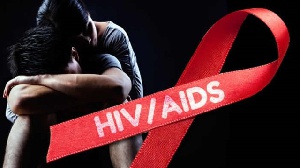According to the World Health Organization, palliative care is "an approach that improves the quality of life of patients and their families facing the problems associated with life-threatening illness, through the prevention and relief of suffering by means of early identification and impeccable assessment and treatment of pain and other problems, physical, psychosocial, and spiritual.”
Palliative consideration is proper for people with severe illnesses like HIV/AIDS and cancer over the age range and can be given as the principal objective of care or pair with curative treatment. It is delivered by an interdisciplinary health care team among which are; doctors, nurses, occupational and physical therapists, social workers, psychologists, speech-language pathologists, dietitians and chaplains. The services of palliative care can be given in a multiplicity of settings such as home settings, outpatient, hospices, hospital and daycare.
Unfortunately, out of the 53 African countries in the continent, only four have incorporated palliative care into healthcare policy and used it as part of a strategic plan concentrating on cancer treatment. These countries include Uganda, Kenya, Tanzania, and South Africa.
However, in sub-Saharan Africa, over 24 million people are living with Human Immunodeficiency Virus/Acquired Immune Deficiency Syndrome (HIV/AIDS) accounting for about 70% of the global disease burden, with more than 1 million new infections reported in 2019. Similarly, according to the Ghana AIDS Commission, there is a drastic increase in persons infected with HIV/AIDS in Ghana. For instance, in 2018, about 19,931 individuals were newly diagnosed with HIV infection. And among these were 3,317 young children between the ages of 0 and 14, while the rest of the 16,614 were grownups. Currently, the statistics for HIV infected person’s stands at 334,717 in Ghana.
In similar vine, cancer in Ghana is ranked 10th in the burden of disease in Africa with morbidity of 4,650. According to the President of Breast Care International (BCI), Dr. Mrs. Beatrice Wiafe Addai, in 2019, 2,062 women were diagnosed with the disease in Ghana.
This increasing statistics of HIV/AIDS and cancer incidence calls for integrations of palliative care into the existing traditional health care system because, palliative care is not restricted to persons near the end of life alone. In fact, palliative care’s scope embraces individuals with pain and serious illness. Any life-threatening condition which either decreases a person's quality of life and daily functions or rises caregiver burden, through pain and symptom management are considered a palliative care case. The overridden goal of palliative care is to improve the quality of life of individuals with serious illness.
According to the Ghana HIV/AIDS commission, HIV infections are still a pressing matter for Ghana. And this epidemic has forced the region to start working on implementing a series of programs and policies to stop the spread of the disease and better manage the infection. However, this series of the program must include a well thought out and integrated palliative care.
Palliative is an important component of a comprehensive package of care for people living with HIV/AIDS and cancer due variety of symptoms they experience among them are; pain, cough, shortness of breath, difficulty in swallowing, weakness, nausea, fatigue, fever, diarrhoea and confusion. Proper incorporation of palliative into the traditional health setting or establishing palliative care centers will help the specialist concentrate on symptom-specific care thereby mitigate patients distressing symptoms such as pain that results in undue suffering.
Recently the ministry of health through the government of Ghana in collaboration with the nursing and midwifery Council have instituted Ghana College of Nurses and Midwives to train nurses and midwives specialist. Among some of the specialist programs, the school offer is palliative care. Even though, the enrolment level for the palliative program is small, it is commendable. There must be a similar effort by the government and other industry players to establish hospices, and other palliative care centers for such specialists to work instead of joining the mainstream health care.
It can be reckoned that, the implementation of palliative care is a global health challenge, which has implications not only for health-care systems but for various strata of our society. Thousands of patients, particularly in low and middle-income countries, experience needless suffering and pain without access to pain killers like morphine, and with those who have access being placed on restrictive administration. This has enormous social and psychological effects on individuals and families dealing with end-of-life care or management of a loved one with distressing symptoms.
The consequence of the rebound effect will impact the economy, attitude and lifestyle which will, in turn, affect future generations. To mitigate this chain of effects, the World Health Organization has polished an enhanced public health model to provide an effective strategy for incorporating palliative care in all African countries. It is up to our generation of health-care providers to offer patients this multidisciplinary and multi-sectorial approach of health care in Ghana, the sub-region and Africa at large. Even though death is a reality of the medical profession, but the pain doesn’t have to be.
The writer is Assistant Lecturer, Department of Nursing and Midwifery University of Health and Allied Sciencs, Ho.
Opinions of Sunday, 16 February 2020
Columnist: Gbande Sulleh



















